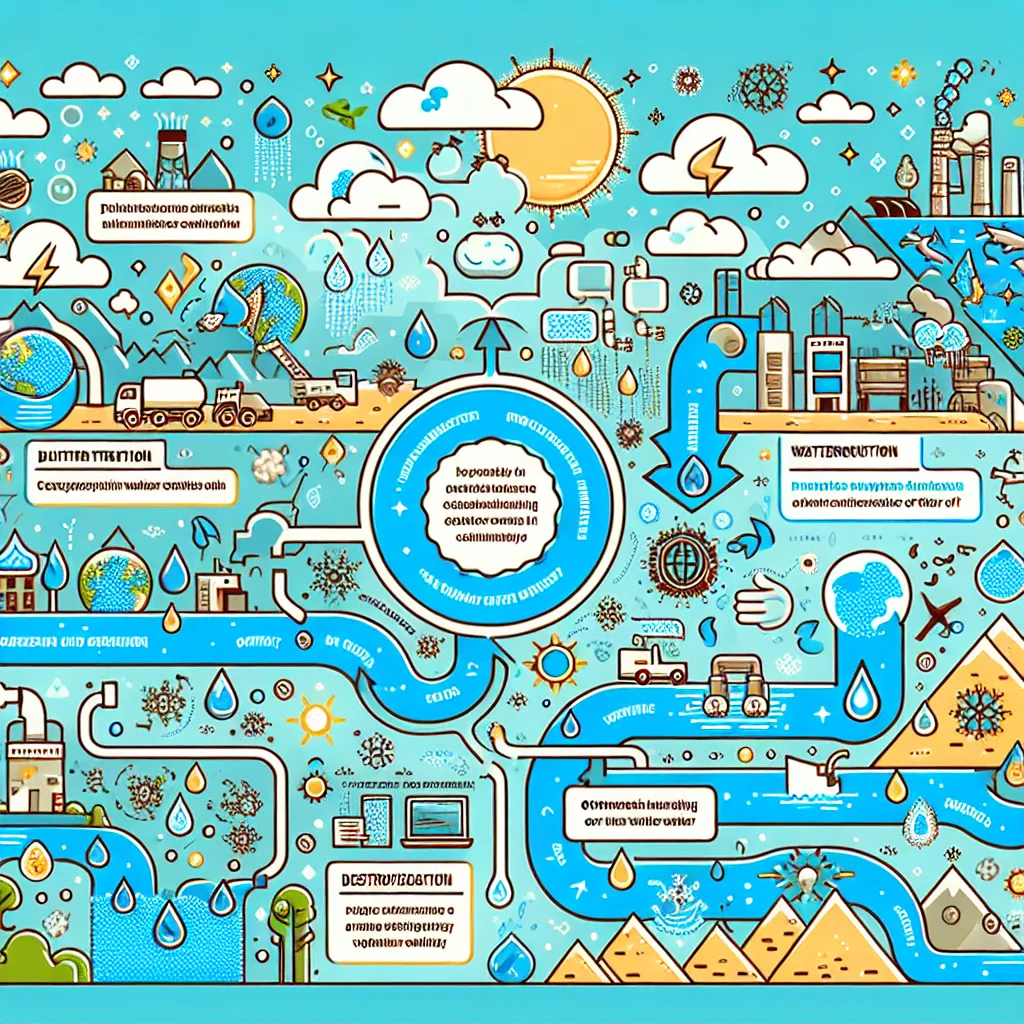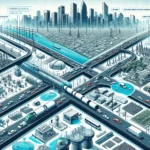Welcome to our IELTS Reading practice session focusing on the challenges of water conservation. This topic has been a recurring theme in IELTS exams, reflecting its global significance. Based on our analysis of past IELTS tests, water-related issues have appeared frequently, making it a highly relevant subject for future exams. As we delve into this practice, remember that the IELTS Reading section requires you to demonstrate your ability to understand complex texts, identify key information, and draw accurate conclusions.
 Challenges of water conservation infographic
Challenges of water conservation infographic
Practice Text: The Global Water Crisis
Passage
Water is often referred to as the world’s most precious resource, and for good reason. It is essential for life, agriculture, industry, and ecosystems. However, the world is facing an unprecedented water crisis that threatens the well-being of millions of people and the stability of entire regions. This crisis is not just about scarcity; it’s about the complex challenges of managing, conserving, and equitably distributing water resources in a rapidly changing world.
One of the primary challenges in water conservation is the increasing demand due to population growth and urbanization. As cities expand and populations increase, the strain on local water supplies intensifies. This is particularly evident in developing countries, where infrastructure struggles to keep pace with rapid urban growth. In many megacities, such as Mumbai and Mexico City, millions of residents face daily water shortages, highlighting the urgent need for better water management strategies.
Climate change exacerbates these challenges by altering precipitation patterns and increasing the frequency of extreme weather events. Droughts are becoming more severe and prolonged in many parts of the world, while other regions experience increased flooding. These changes not only affect the availability of freshwater but also impact water quality. For instance, rising sea levels are causing saltwater intrusion into coastal aquifers, threatening freshwater supplies for millions of people.
Agriculture, which accounts for about 70% of global freshwater use, presents another significant challenge. Inefficient irrigation practices waste vast amounts of water, while the overuse of fertilizers and pesticides pollutes water sources. The challenge lies in balancing the need for food security with sustainable water use. This requires adopting more efficient irrigation technologies and promoting crops that are better suited to local water conditions.
Pollution from industrial and domestic sources further complicates water conservation efforts. In many developing countries, untreated wastewater is discharged directly into rivers and lakes, rendering water sources unsafe for human use and devastating aquatic ecosystems. Addressing this issue requires significant investments in wastewater treatment infrastructure and stricter enforcement of environmental regulations.
The transboundary nature of many water resources adds a layer of geopolitical complexity to water conservation. Rivers and aquifers that cross national borders require cooperative management, but competing national interests often lead to conflicts. The Nile Basin, shared by 11 countries, is a prime example of how water can become a source of tension in international relations.
Technological solutions offer hope in addressing some of these challenges. Innovations in desalination, water recycling, and precision agriculture are making it possible to do more with less water. However, these technologies are often expensive and energy-intensive, limiting their widespread adoption, particularly in developing countries.
Perhaps the most fundamental challenge in water conservation is changing human behavior and perception. Many people in water-rich regions take this resource for granted, leading to wasteful practices. Education and awareness campaigns are crucial in fostering a culture of water conservation, but changing deeply ingrained habits is a slow process.
In conclusion, the challenges of water conservation are multifaceted and interconnected. They require a holistic approach that combines technological innovation, policy reform, international cooperation, and individual action. As the global population continues to grow and climate change intensifies, addressing these challenges will be crucial for ensuring a sustainable and equitable water future for all.
Questions
1-5. Choose the correct letter, A, B, C, or D.
-
According to the passage, what is the primary cause of increased water demand?
A) Climate change
B) Industrial use
C) Population growth and urbanization
D) Agricultural practices -
Which of the following is NOT mentioned as a challenge exacerbated by climate change?
A) Altered precipitation patterns
B) Increased flooding in some regions
C) Saltwater intrusion into coastal aquifers
D) Overuse of fertilizers and pesticides -
What percentage of global freshwater use is attributed to agriculture?
A) 50%
B) 60%
C) 70%
D) 80% -
Which of the following best describes the challenge of transboundary water resources?
A) Lack of technological solutions
B) Competing national interests
C) Insufficient water quantity
D) Poor water quality -
What does the passage suggest is the most fundamental challenge in water conservation?
A) Lack of financial resources
B) Inadequate technology
C) Human behavior and perception
D) Geopolitical conflicts
6-10. Complete the sentences below.
Choose NO MORE THAN TWO WORDS from the passage for each answer.
-
In many megacities, millions of residents face daily , highlighting the need for better water management.
-
Rising sea levels cause into coastal aquifers, threatening freshwater supplies.
-
Inefficient _____ practices in agriculture waste vast amounts of water.
-
Many developing countries discharge directly into rivers and lakes.
-
Education and are crucial in fostering a culture of water conservation.
Answer Key
-
C) Population growth and urbanization
Explanation: The passage states, “One of the primary challenges in water conservation is the increasing demand due to population growth and urbanization.” -
D) Overuse of fertilizers and pesticides
Explanation: While the passage mentions this as a challenge in agriculture, it is not specifically linked to climate change in the text. -
C) 70%
Explanation: The passage directly states, “Agriculture, which accounts for about 70% of global freshwater use…” -
B) Competing national interests
Explanation: The passage mentions that “competing national interests often lead to conflicts” in the context of transboundary water resources. -
C) Human behavior and perception
Explanation: The passage describes this as “the most fundamental challenge in water conservation.” -
water shortages
Explanation: The passage states, “In many megacities, such as Mumbai and Mexico City, millions of residents face daily water shortages…” -
saltwater intrusion
Explanation: The text mentions, “Rising sea levels are causing saltwater intrusion into coastal aquifers…” -
irrigation
Explanation: The passage refers to “Inefficient irrigation practices waste vast amounts of water…” -
untreated wastewater
Explanation: The text states, “In many developing countries, untreated wastewater is discharged directly into rivers and lakes…” -
awareness campaigns
Explanation: The passage mentions, “Education and awareness campaigns are crucial in fostering a culture of water conservation…”
Common Mistakes to Avoid
-
Overlooking specific details: Many test-takers rush through the text and miss crucial information. Take your time to read carefully.
-
Falling for distractors: In multiple-choice questions, incorrect options often contain information from the text but not in the correct context. Always refer back to the passage.
-
Misinterpreting synonyms: IELTS often uses synonyms or paraphrasing. Ensure you understand the meaning, not just recognize words.
-
Ignoring word limits: In sentence completion tasks, adhere strictly to the word limit given.
-
Spelling errors: Even if your answer is conceptually correct, spelling mistakes will cost you marks.
Key Vocabulary
-
Unprecedented (adjective) – /ʌnˈpres.ɪ.den.tɪd/: Never having happened or existed in the past.
-
Exacerbate (verb) – /ɪɡˈzæs.ər.beɪt/: To make a bad situation even worse.
-
Intrusion (noun) – /ɪnˈtruː.ʒən/: The act of entering a place where you are not wanted or expected to be.
-
Aquifer (noun) – /ˈæk.wɪ.fər/: An underground layer of rock that contains water which can be extracted.
-
Geopolitical (adjective) – /ˌdʒiː.əʊ.pəˈlɪt.ɪ.kəl/: Relating to politics, especially international relations, as influenced by geographical factors.
Grammar Focus
Pay attention to the use of present perfect tense in the passage, e.g., “Climate change has exacerbated these challenges.” This tense is used to connect past actions with present situations, which is crucial in discussing ongoing global issues like water conservation.
Structure: Subject + have/has + past participle
Example: “Droughts have become more severe and prolonged in many parts of the world.”
Practice: Create sentences using the present perfect tense to describe other environmental challenges.
Tips for Success
-
Time management is crucial. Allocate your time wisely across all sections of the reading test.
-
Practice active reading. Underline key information and make brief notes as you read.
-
Familiarize yourself with different question types. Each type requires a specific approach.
-
Improve your vocabulary related to environmental issues. This will help you understand complex texts more easily.
-
Read widely on global issues. The more background knowledge you have, the easier it will be to understand and interpret IELTS reading passages.
Remember, success in IELTS Reading comes with consistent practice and a strategic approach. Keep challenging yourself with diverse reading materials and practice tests. For more insights on water-related topics in IELTS, check out our articles on global challenges in water conservation and the effects of climate change on global freshwater supplies.
Good luck with your IELTS preparation!


